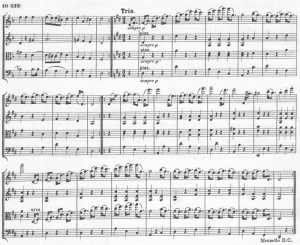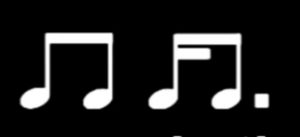Merkzettel Nov.2017
HIER – zu dem kunstvoll ausgearbeiteten Vortrag von eineinviertel Stunde, mit Musikbeispielen, Filmen, und Erläuterungen.
A huge social and cultural history lies in the microcosm of this two-note rhythm. Questions dealt with include [1] What is a „Scotch snap“? [2] How does it relate to language, class and ethnicity? [3] Is it just Scottish, or is it also Irish, Welsh, English, West African, Hungarian, „Celtic“, „black“, „white“ or what? [4] It’s used by Henry Purcell, Béla Bartók, Mahalia Jackson, Woody Guthrie, Stevie Wonder, Ry Cooder, James Brown and Buck Owens; and you’ll also find it in Strathspeys, traditional English ballads, Appalachian fiddling, string band music, spirituals, white gospel, black gospel, even in West African time lines, but you won’t hear it in mariachi, mbaqanga or MPB, nor in music of South or Central Europe: why and why not? [4] It has to do with English language rhythm but then why did the snap disappear from English music during the 18th century to re-emerge globally in popular musics of the late 20th century? [5] Why did Dvořák think that „Negro“ and „Scottish“ musics were similar? [6] How come some music of English origin is labelled „Celtic“ when England is seen by fans of „Celticity“ as the devil incarnate? This instructive but entertaining video offers an alternative to ethnic fixations in popular music history and genre labelling.
Weitere Infos über die Arbeiten des Autors Philip Tagg und über ihn selbst:
https://www.tagg.org/articles/pm2anal.html hier
https://en.wikipedia.org/wiki/Philip_Tagg hier
Lombardischer Rhythmus siehe bei Wikipedia hier. Und nach dem dort angegebenen Musikbeispiel höre man lieber das lebendige Original in der folgenden Youtube-Aufnahme mit dem Hagen-Quartett: HIER ab 16:04, das ist das Trio des Menuetts, anschließend aber unbedingt das ganze Menuett von Anfang ab 14:22, und endlich das ganze wunderschöne Ritual des Mozartschen d-moll-Quartetts von Anfang bis Ende, ohne weiter an den Lombardischen Rhythmus zu denken!
 Menuett aus KV 421, Mittelteil
Menuett aus KV 421, Mittelteil
(Dank an MH für den Hinweis!)
